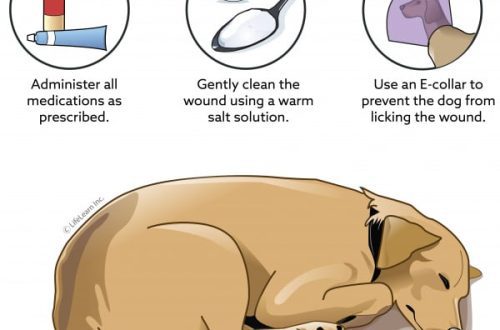
We take a puppy for education: a guide
For several years, Barbara Shannon has been raising dogs from rescue organizations, and she falls in love with each of them. What about her favorites? These are feisty and pugnacious puppies.
“They can be a lot of work, but it’s great to watch them grow and develop their personalities,” says Barbara, who lives in Erie, Pennsylvania. “It takes a lot of love and time, but it’s the best experience.”

If this is your first time getting a dog and wondering if you can raise a puppy, know that although it can be difficult, it will be a very valuable experience.
Contents
Why do shelters give away puppies?
Volunteers can help shelters in many ways – to raise dogs in their homes until they are taken by new owners. In Russia, this is called “overexposure”. Some rescue organizations do not physically have a dog building, while others may not have enough space for all the needy animals living in their area. Treating dogs can benefit them by allowing them to adjust to family life for the first time or by relieving the stress of living with other animals.
One of the organizations that Barbara Shannon raises puppies for is the Humane Society of Northwestern Pennsylvania, located in Erie, Pennsylvania. Shelter director Nicole Bavol says the shelter focuses on raising pregnant dogs and very young animals.
“The environment at the shelter can be noisy and stressful,” says Nicole. “We also have dogs that come and go all the time, which contributes to the spread of disease, and puppies, like all children, are more prone to catching these diseases.”
Nicole Bavol says that another reason why the shelter pays attention to raising puppies and kittens is the importance of socialization. For example, the shelter recently received puppies that were removed from the home during an abuse investigation. The four-month-old puppies were not well socialized and showed aggressive behavior, but were able to change for the better when they began to live in a safe place, she said.
“At times like this, you really see the power of parenting – you can take a very timid pet and put him in the house cycle, and after a few weeks, he begins to dynamically develop,” she says.
What to Expect as a Puppy Caretaker
If you want to learn how to raise a puppy, you can try on the profession of a seasonal caregiver. He must be prepared to clean up the mess and have knowledge of the main symptoms of dog diseases to watch out for. If suddenly the puppy needs treatment or has some behavioral problems, then be prepared to give him more time than you give your own pet.
Caring for puppies – especially those with a sad past – can be a time consuming task. Shannon is retired so she can stay at home with the dogs she raises most of the day. Most recently, she had a mother dog in her upbringing, who came to her with two two-week-old puppies.
“They were healthy, so my first job was to help my mom in the first few weeks,” she says. But once the puppies grew up and became more independent, her home should be safe for puppies.
“Puppies chew everything,” she says. “Therefore, it is important to provide a safe environment for them.”
After seven weeks at her home, the puppies returned to the shelter, where, thanks to social media, they were sorted into families within a few hours.
“We usually have little to no problems with adopting puppies, especially small breed puppies, they are picked up almost immediately,” says Nicole Bavol.
The price of education
Most shelters provide some assistance to “educational” families. For example, many shelters pay for any veterinary care. And other shelters help much more. For example, the Erie shelter, where Nicole and Barbara work, has everything from food and leashes to toys and bedding.
At a minimum, as a temporary puppy caregiver, you should be prepared to:
- To a lot of washing. According to Barbara, you should plan on changing and washing bedding once a day when you have a mother dog with puppies.
- Spending a lot of time and doing a lot. Even healthy puppies need a lot of time and attention. As Nicole Bavol says, sometimes there is a puppy or two in a litter that needs special care, like bottle feeding, which can make caring for them even more difficult.
- Provide a safe space. As puppies get older and bolder, you’ll want to lock them up for safety when you’re away or doing household chores. This enclosed space could be a special “puppy room” with a child barrier at the door, or some large playpen or kennel for dogs.
But what matters most?
“You will need much love and time to raise a puppy or dog,” says Barbara Shannon.

Recommendations for adoption
While each shelter and rescue organization has different protocols for approving foster families, most require paperwork and at least basic background checks. Some organizations require more.
The Humane Society of Northwestern Pennsylvania requires applicants to complete forms, complete background checks, an interview, and a home screening before being approved.
“Some people think we’re too strict because it’s volunteer work, but we’re responsible for pet welfare and we take it seriously,” says Nicole Bavol.
For Barbara Shannon, the time and effort it takes to raise puppies is worth it — especially when she hears the news that the dogs have been taken from a shelter.
“Of course, it’s always hard to say goodbye,” she says. “I just have to remind myself that I am just a step on the way to their permanent home.”
So if you’re interested in raising puppies or dogs with special needs, talk to your local shelter to see if they have a program you can join. The length of the training period varies depending on the needs of the dogs, and it can be several months before there are dogs in need of training, so make sure you are always prepared. The joy that dogs can bring in being raised is indescribable and you can watch these dogs grow up as if they were your own.





